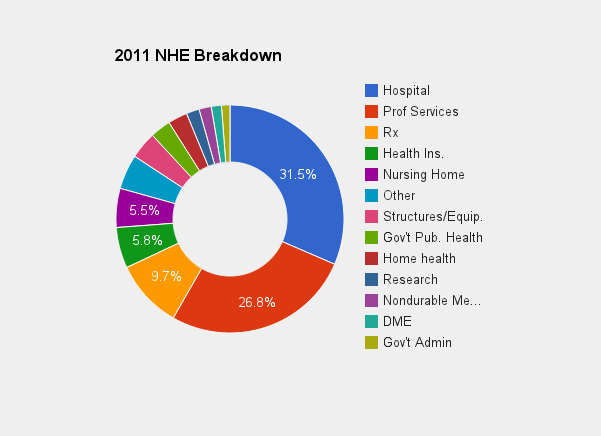DonFrancisco
Your Favorite Tio!
Wait, you're saying that other nations, exempt from our patent laws, that use drugs developed here in the U.S. without having to pay any research and development cost, spend less???
Sounds about right.
my question is, what does that mean? When people say we spend more? what exactly does that mean? and why does it matter? seriously...
First off, "big pharma" only accounts for around 10% of our total health care spending (still a lot compared to other nations) and research percentage is even smaller. Drugs and research aren't the reason for inflation, it is human resource costs and the cost of hospitals. Those cost can be attributed to our piss poor hospitals that keep increasing the price of care but don't want to focus on organizational improvement and efficiency. What other nations have done, has made care and how ALL healthcare facilities and staff receive payment, universal. They have done things like nationalize health information and many healthcare facilities. There is a reason why Singapore and Taiwan didn't choose the U.S. system of care. Capitalism and fragmentation drive up cost and doesn't lead to any real tangible results. IF what you were say was true, the chart below would show medicine and research would take up a larger percentage of the pie chart, but it doesn't in fact it only takes up 11-12%, hardly an impact on the payment of care in this country.

This is why spending matter so much:


By 2040 over 33% of our GDP will be health care. Our economy will consists of health workers, patients, and everyone else. The reason it matter so much is that our quality and our outcomes are worse than other countries that spend HALF OF WHAT WE INVEST. I'm sorry but if we are going to invest $7000 per person, we better be at the top of every quality and healthcare outcome measure not at the bottom. Our return on investment is piss poor.
Last edited:



